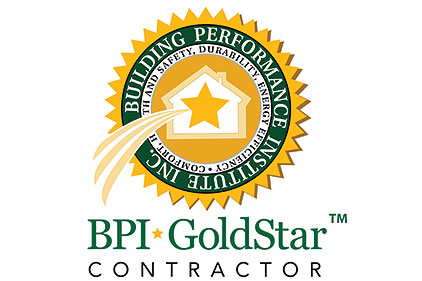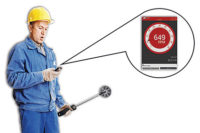What’s New in HPC Credentials?
BPI, RESNET, ACCA Share Insight into Latest Home-Performance Contracting Programs

Some homeowners may be wary of the legitimacy of HVAC contractors who have branched into providing home-performance services. One way to allay their fears is to present evidence of certification in this field. Here is a look at what’s new and coming soon in the world of home-performance credentials.
BPI GoldStar Contractor
 Building Performance Institute Inc. (BPI) rolled out a new credentialing program in May. According to Leslie McDowell, BPI director of communications: “The BPI GoldStar Contractor program is a company-wide credentialing program that provides HVAC companies with an on-ramp to expand into building-performance contracting. The program recognizes and rewards contractors committed to the principle that quality is profitable and can set companies apart in the marketplace.”
Building Performance Institute Inc. (BPI) rolled out a new credentialing program in May. According to Leslie McDowell, BPI director of communications: “The BPI GoldStar Contractor program is a company-wide credentialing program that provides HVAC companies with an on-ramp to expand into building-performance contracting. The program recognizes and rewards contractors committed to the principle that quality is profitable and can set companies apart in the marketplace.”
The GoldStar program replaced BPI’s Accredited Contracting Company program. McDowell explained the new program is focused on “the front-end quality management training of contractors rather than on catching poor performance through back-end QA inspections after work is done.” She stressed that training for GoldStar contractors is focused on quality management system (QMS) processes and noted GoldStar contractors are incentivized to progress through training with rebates on their fees.
Plus, McDowell pointed out that BPI’s new program costs $300 less than the old program. “Because this program doesn’t require BPI to pay for the services of third-party QA inspectors, BPI is able to pass this cost savings on to contractors. We reduced our fees from $1,500 to $1,200 per year,” she said.
To become a GoldStar contractor, contractors must have a BPI-certified professional on staff, follow BPI standards for home-performance jobs, have a customer dispute resolution policy, implement a standardized data collection system on home-performance jobs, use documented sign-off forms or checklists on all completed work, and maintain records of calibration of diagnostic equipment.
In addition to this new program, BPI has also been busy introducing new individual certifications. In October 2013, the organization rolled out its four Home Energy Professional certifications — Energy Auditor, Retrofit Installer Technician, Crew Leader, and Quality Control Inspector — which are supported by the U.S. Department of Energy (DOE) and accredited by the American National Standards Institute (ANSI).
Recently, BPI began piloting a single-measure Infiltration and Duct Leakage (IDL) certification. “Earning the IDL certification is a quick, comprehensive, and affordable way for building, remodeling, HVAC, and insulation technicians to gain the skills needed to offer duct leakage and blower door tests in compliance with IECC [International Energy Conservation Codes],” McDowell said. “BPI test centers will provide hands-on training to prepare candidates for BPI’s IDL field-only exam.”
RESNET EnergySmart Contractor
The Residential Energy Services Network (RESNET) is best known for its Home Energy Rating System (HERS) and for the HERS Raters it certifies to perform these home assessments. However, there is another new offering from RESNET engineered for HVAC contractors. The RESNET EnergySmart Contractor is a good fit for contractors seeking home-performance contracting (HPC) certifications, said RESNET executive director Steve Baden. This program, which was launched in 2012, is supported by ACCA and aimed at contractors, Baden noted.
According to the organization’s website: “RESNET EnergySmart Contractor is a company designation. One employee must complete the required training and pass the exam for the company to qualify.”
For the training portion, the employee must complete eight hours of instruction from an accredited educational provider. The course covers the principles of energy efficiency, cost-effective energy-efficient practices, the house as an inter-related system, combustion safety, and work scope procedures and prioritization.
After completion, the employee must pass a test. According to the website, the open-book exam includes 50 multiple-choice questions and must be completed within a two-hour time limit. It is administered by RESNET and can be taken anytime. The test taker must arrange an exam time with a CEQ [Contractor Education and Qualification] provider. If a participant does not pass the exam, he or she may re-take it. The fee to take the exam is $50.
There are additional conditions EnergySmart Contractors must meet, such as licensure and insurance requirements, as well as continuing education mandates.
Baden said those who pursue the credential gain the increased credibility of a national designation backed by a third-party organization. At this time, Baden said, “only a few” HVAC contractors have chosen to seek this designation.
ACCA Quality Assured
 According to ACCA, its Quality Assured (QA) contractor accreditation program is growing in popularity. ACCA is in the process of expanding QA’s scope by developing an HPC designation under the QA umbrella.
According to ACCA, its Quality Assured (QA) contractor accreditation program is growing in popularity. ACCA is in the process of expanding QA’s scope by developing an HPC designation under the QA umbrella.
“In this industry, you never stop learning,” said Wes Davis, vice president of QA programs. “HVAC contractors are already familiar with heat transfer and some construction practices. The QA program’s HPC training will start at a basic level and ensure key fundamentals are well understood. Additionally, other tools and support will be available to help them better serve customers.”
Davis noted the HPC accreditation will be based on ACCA’s ANSI-recognized standard for home performance, ACCA 12-QH Existing Home Performance Evaluation & Improvement.
“ACCA has been diligently working on an educational platform that can provide training and a process to ensure key facets of home performance are understood by the contractor,” he said. “To make sure we are launching a top-notch program that holds value to contractors, we are making every effort to have all the necessary building blocks firmly in place before we release it to the industry at large.”
Since the HPC accreditation will be a portion of the QA program, all of the requirements for QA accreditation will have to be met to earn this credential. Contractors are encouraged to visit www.qacontractors.org to learn more about the requirements to participate in these programs, which include proof of legitimate business operation and continuing education.
“QA program accreditation is one price — $800 —for New Homes, RSI, and HPC contractor accreditation,” Davis said, adding the price is reduced to $600 for ACCA members.
Publication date: 10/6/2014
Want more HVAC industry news and information? Join The NEWS on Facebook, Twitter, and LinkedIn today!









